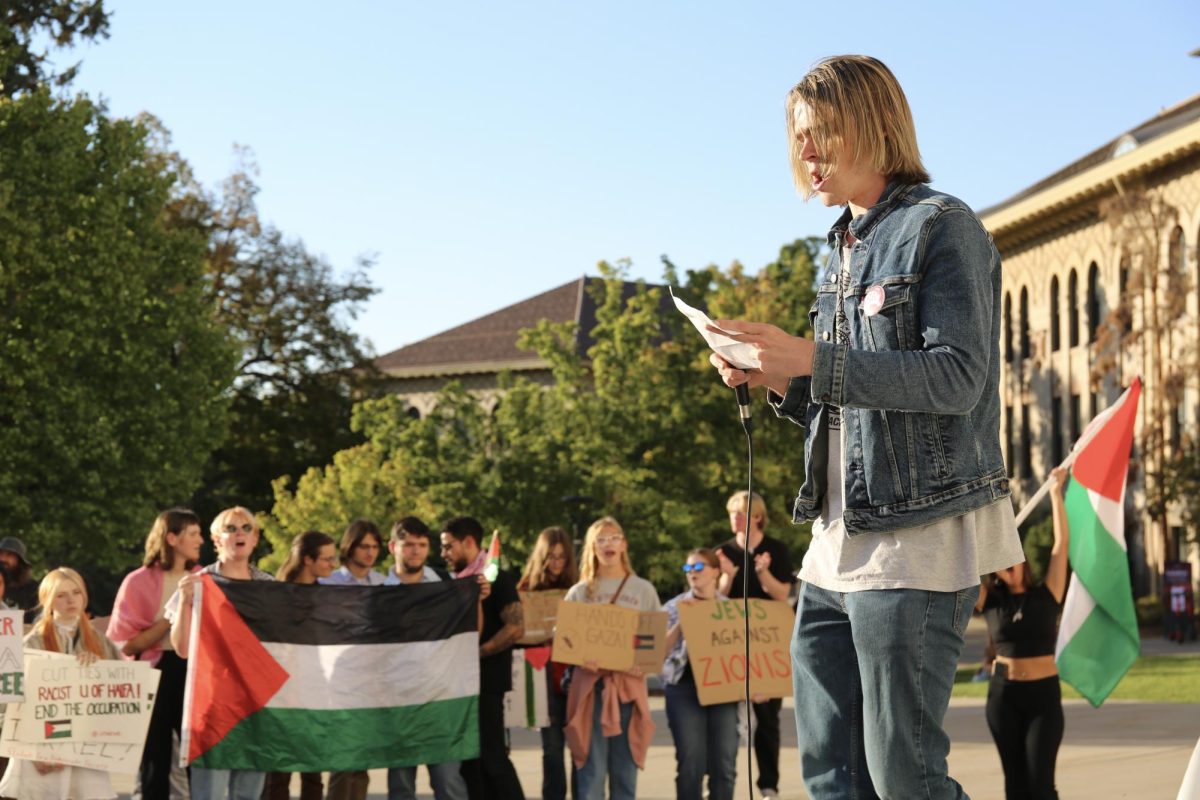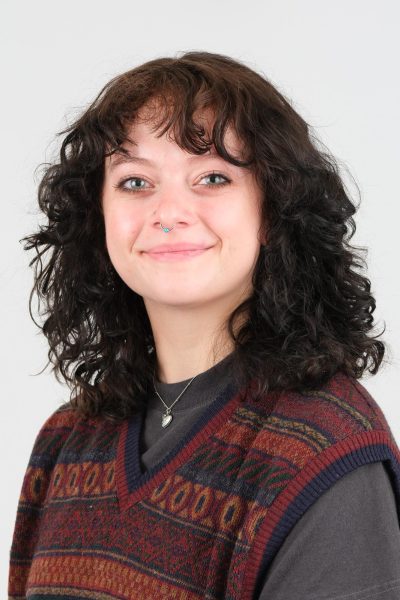In front of the Park Building in Presidents Circle on Thursday, roughly 80 students and community members stood chanting and demanding the University of Utah disclose and divest from its ties to Israel.
The protest, organized by the student organization Mecha, was part of a “week of action” the group organized to commemorate a year since the beginning of the Israel-Hamas war. The conflict was spurred by Hamas’ Oct. 7 attack on Israel. According to Al Jazeera, more than 40,000 Palestinians and over 1,000 Israelis have been killed since the war began.
“It’s been a year of genocide, but it’s also been a year of nonstop resistance, resilience, fighting and movement building by the people of Palestine and people across the world,” Christopher Loera-Peña, student organizer for Mecha, shouted to the crowd.
One speaker named Olivia also spoke at the rally. She fought against the idea that being an anti-Zionist means being antisemitic. She spoke about her struggles with her Jewish faith in the face of the war in the Middle East.
“If there are any other Jewish comrades in the crowd struggling to celebrate or hold space for holidays this year because of our religious institution’s entrenchment in the Zionist project, I hear you,” she said.
In addition to speaking against the war in Gaza, speakers also critiqued the U’s response to H.B. 261 and its shutdown of several resource centers. They also spoke against Israel’s recent military action in Lebanon and spoke in support of Mexico.
“From Palestine to Mexico, border walls have got to go,” one chant rang.
Sebastian Miscenich also spoke on behalf of Utah Students for a Democratic Society. Over the past couple of weeks, the group has launched its own demonstration campaign for Palestine.
Miscenich called for the U to end its study abroad program with the University of Haifa in Israel.
“We demand the Learning Abroad Office end this relationship and our university no longer collaborates with the racist genocide-enabling schools,” Miscenich said.
Last spring, @theU released an article explaining the hurdles the U as a public university faces in terms of divesting from Israel. It pointed to a Utah Code that prohibits government entities from contracting with companies engaging in a boycott of Israel.
“This law is one of more than 30 similar laws and executive orders that limit public universities in states around the U.S.,” the article read.
Still, despite that law, Loera-Peña and Chantal Irungaray, another Mecha student organizer, said they believe the U can do more to meet their demands.
“I feel like as students are organizing, protesting, we want to call the university to stop sending cops to our events,” Loera-Peña said.
Irungaray also cited the U’s study abroad program in Haifa and called on the U to reinstate the DEI resource centers it closed over the summer.
“Bring these DEI centers back, which are like the band-aid, the bare minimum for students of color,” Irungaray said.
“We just need more transparency,” Loera-Peña said. “Transparency from the U and to actually stand up for students.”




